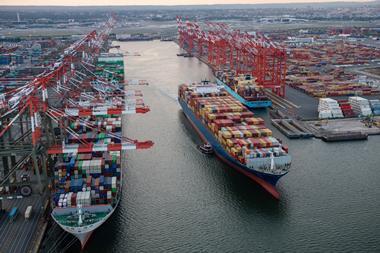 In a response to declining sales and production output in Russia, PSA Peugeot Citroen has cancelled its rail shipments of parts and knockdown kits from France and Europe to its factory in Kaluga, south of Moscow, the OEM has confirmed.
In a response to declining sales and production output in Russia, PSA Peugeot Citroen has cancelled its rail shipments of parts and knockdown kits from France and Europe to its factory in Kaluga, south of Moscow, the OEM has confirmed.
A spokesperson from PSA told Automotive Logistics, "Production dropped to 43 cars a day which makes the process economically unbearable. We put a total stop to the rail corridor at the end of August 2014." All of the material sent from Europe to Kaluga is now made by truck delivery, the spokesperson said.
Gefco, which provides logistics services for PSA, had managed the complete rail service inbound for Kaluga, including consolidation of material in Europe, and rail dispatch between Vesoul, in eastern France, and Kaluga. The logistics provider, which is owned 75% by Russian Railways and 25% by PSA, was contacted for comment but deferred to customer PSA to respond.
Gefco, which still operates under a long-term, dedicated contract with PSA, is still responsible for material consolidation and truck deliveries to Kaluga.
Gefco, as part of its links with Russian Railways, has been encouraging rail transport in Russia, including long-distance links with both Europe and China via the Trans-Siberian railway. Two years ago, PSA and Gefco had intended to introduce rail flows for parts consolidated in China to move by rail to Kaluga; however, output in Kaluga has been too low to justify the rail from Asia. Other logistics providers, including DB Schenker, have also been pushing rail links between Europe and Asia across Russia.
The latest news is an example of how supply chain flows into Russia are being adjusted

Recent figures show that sales have fallen for the ninth month in a row, with sales of passenger cars and light commercial vehicles falling 20% in September when compared with 2013. This followed a drop of 26% in August, and 23% in July.





















